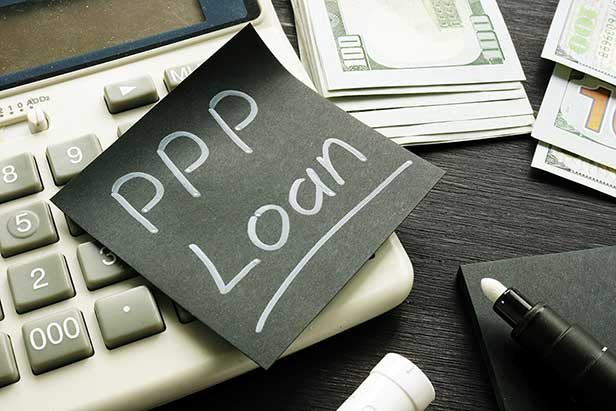June 04, 2020
Senate Passes PPP Reform Bill
That clears the way for President Donald Trump to sign the legislation into law.
Promotional products businesses and other companies across industries that received Paycheck Protection Program Loans are poised to have more flexibility in how they can use the money and more time in which to use the funds.

That’s because the Senate approved a bill on Wednesday, June 3 that reforms the roughly $650 billion PPP, which the federal government established to help American businesses hurting financially during the coronavirus pandemic.
The House of Representatives had previously approved the bill in a 417-1 vote on May 28. The Senate green-lighted the legislation, dubbed the Paycheck Protection Program Flexibility Act, via unanimous consent.
President Donald Trump can now sign the bill into law.
The Congress-approved bill reduces the share of aid money that small businesses are required to spend on payroll to 60%. Previously, owners were required to spend at least 75% of the funds on payroll in order to ensure the loan would be forgiven.
Additionally, the bill extends the window businesses have to use the funds to six months – or 24 weeks – as opposed to the two months in the original legislation. It pushes back a June 30 deadline to rehire workers, extends the time businesses have to repay the loan if the debt’s not forgiven and allows companies that get loan forgiveness to defer payroll taxes.
Both Republican and Democratic senators said they were eager to get the PPP reform on the books to help make the program more effective for struggling small businesses.
On Monday, June 1, Republican Senate Majority Leader Mitch McConnell said: “I hope and anticipate the Senate will soon take up and pass legislation…to further strengthen the Paycheck Protection Program so it continues working for small businesses that need our help.”
Prior to the vote on June 3, Democrat Senate Minority Leader Chuck Schumer said: “We can't wait any longer. Businesses are really suffering for lack of these changes. We must get this (reform) done. Businesses are going under every day.”
On Tuesday, June 2 and earlier in the day on June 3 there was doubt as to whether the Senate would be able to pass the bill in a unanimous vote – an inability that, had it occurred, would have slowed down the fast-track approval that McConnell was pushing for early in the week.
Part of the hold-up was to due to Republican Sen. Ron Johnson of Wisconsin, who initially objected to passing the bill via unanimous consent. However, “Johnson agreed to let the bill pass after getting a letter entered into the record clarifying the authorization period,” CNN reported.
Overseen by the Small Business Administration, the PPP launched on April 3, part of the $2.2 trillion CARES Act. By April 16, the initial $349 billion in PPP funding was gone, scooped up by businesses negatively impacted by shutdown orders related to the coronavirus pandemic. Congress approved a second $310 billion round of funding on April 27.
Of late, small business demand for the loans has dropped dramatically. It's been speculated that the decline in interest has been due, in part, to business owners’ confusion over terms and apprehension about being on the hook for paying the loan back.
